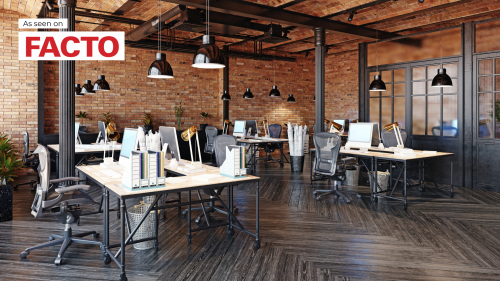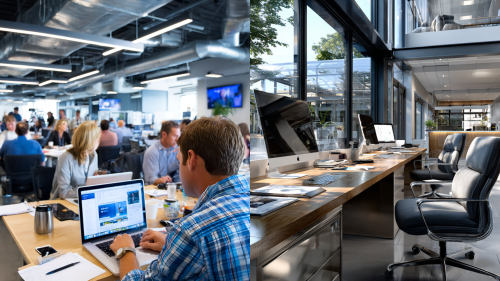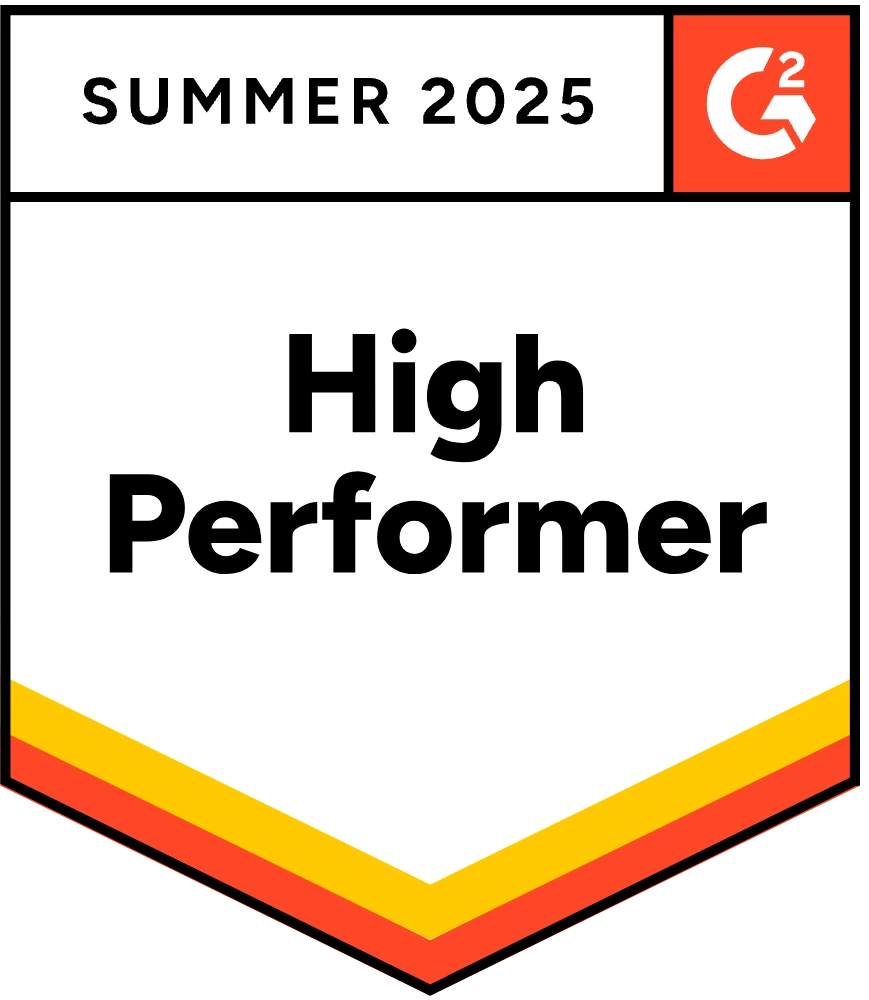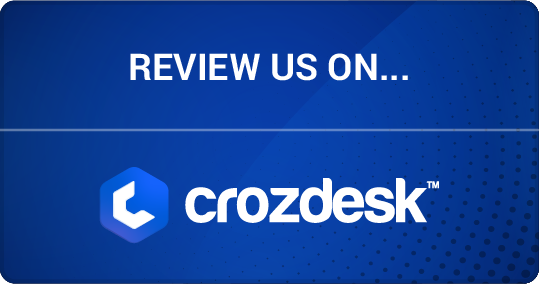Do you spend your days trying to make your offices work better just to receive complaints and bump into inefficiencies? Across industries, facility and workplace teams face similar issues: from double-bookings to service requests that remain unanswered, you may be losing visibility over your workplace, and your tools are not helping.
When this happens, it’s natural to look into teams, workflows, or even individual effort to find the problems. But often the real issue is somewhere else. You’re not failing. Your tools are.
If this sounds familiar, these challenges are signs that your workplace is ready for a smarter, more integrated approach. This article explores key signs that your workplace is outgrowing its tools—and how smart workplace technology can help you take back control.
1. You’re Running Everything Through Spreadsheets or Paper Logs
It might feel manageable at first, tracking visitor logs, space usage or maintenance tasks on spreadsheets or handwritten notes. But over time, and as your workforce grows, this becomes too much to manage.
Manually entering data increases the risk of error and makes it nearly impossible to get a real-time picture of what’s happening. Wasting time searching for the right tab, version, or notebook adds unnecessary stress. Worse, this means teams spend more time recording what’s already happened than planning for what’s next.
When workplace technology is limited and data is stored in static documents, it becomes a barrier to efficiency. You can’t optimize what you can’t see, and frontline teams can’t act on insights that don’t exist. What used to work for fewer requests or smaller teams is no longer efficient for you and your team.
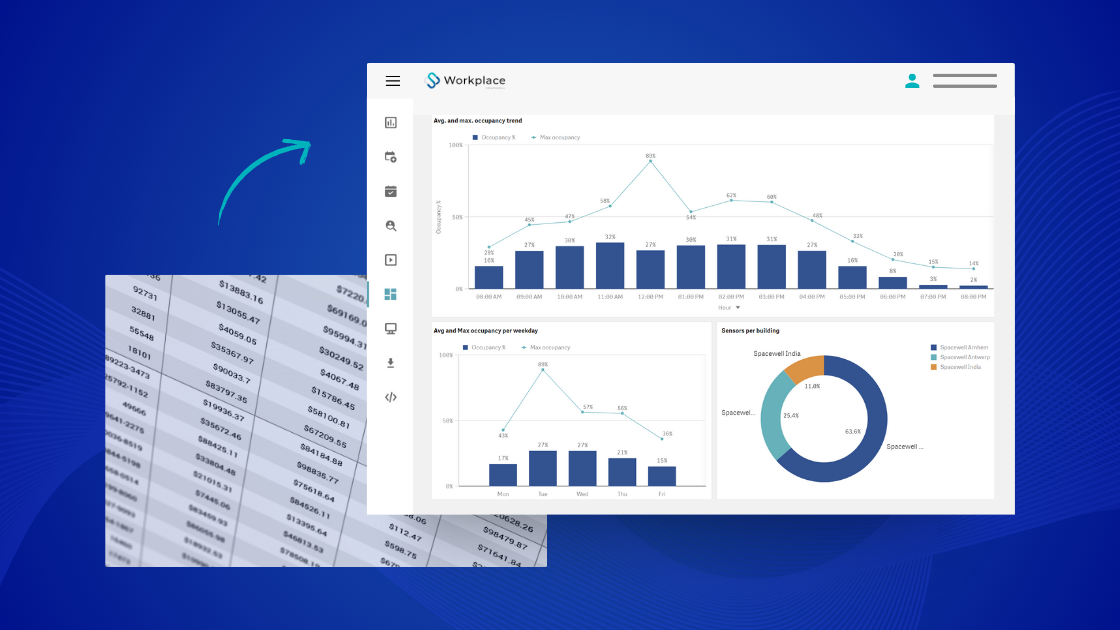
2. No One Knows Who’s Booked What Until It’s Too Late
Whether it’s meeting rooms, collaboration zones, or hot desks, booking conflicts are a recurring frustration. Without smart workplace technology like an office booking system to centralize reservations and requests, it’s easy for double-bookings to go unnoticed until people are standing awkwardly in the same space. And the same happens with service requests that are not met, from cleaning to equipment.
These may seem like minor inconveniences, but they add up: interrupting focus and discouraging teams from using the workplace facilities. Over time, employees may stop booking altogether and resort to informal, undocumented use – which only adds more chaos.
The result? You and your team may be left chasing down complaints and trying to stop fires. Inconsistent booking experiences are a signal that the environment isn’t aligned with how people want (and need) to work, and it may be time to start using smart workplace technology.
3. You’re the First to Hear Complaints, But the Last to Know What’s Happening
When a light goes out or the HVAC stops working, who hears about it first? Chances are, it’s you. But by the time the complaint reaches you, the issue may have been brewing for days.
Reactive maintenance is a reality, and it is normal to some extent, as your facilities and machinery can fail sometimes. But if all you do is react to complaints, you don’t have time to plan ahead and take preventive action.
This mismatch creates frustration on all sides: employees feel unheard, and your teams feel unfairly held accountable without the right tools. Visibility isn’t a luxury—it’s the foundation for efficient support. Without it, even the most dedicated teams are stuck playing catch-up.
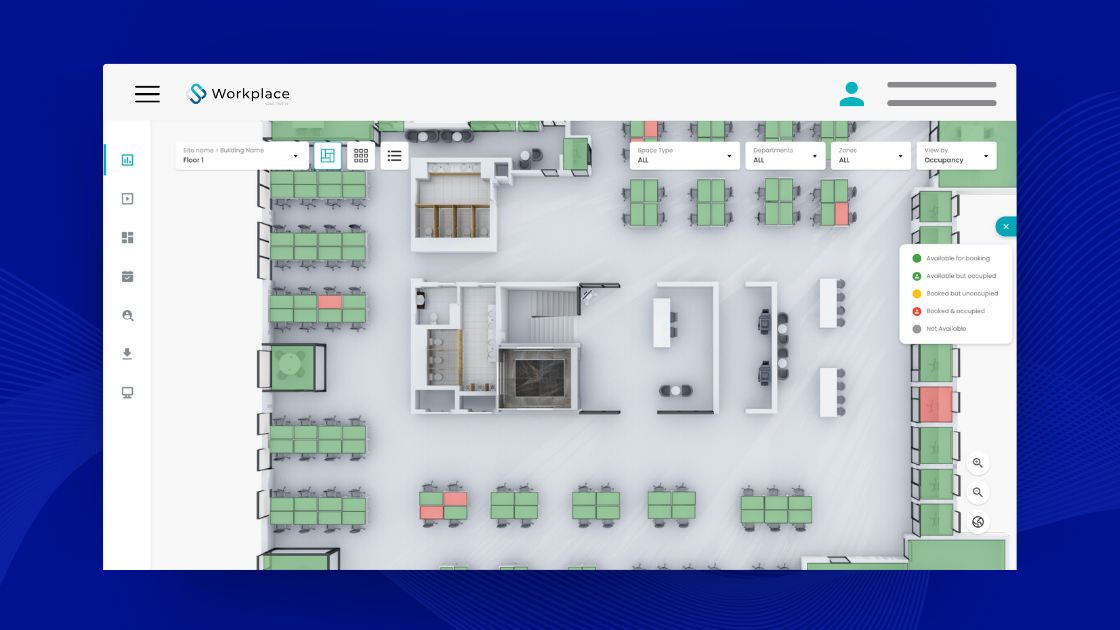
4. Every Site Operates Differently, and Nothing Feels Standardized
Some buildings run like clockwork, while others feel like organized chaos and no one’s entirely sure why. If you manage multiple sites, a lack of standard processes and smart workplace tools makes it hard to compare performance and share best practices.
You and the facilities team end up relying on local memory or personal habits to keep things running, which works until someone leaves, something breaks, or priorities shift.
Without a common system for tracking and managing data, you can’t compare one location against another, and you can’t share protocols and best practices. This results in facility management inefficiencies: team members duplicating efforts and missing requests. If every site feels like its own universe, there is room for improvement to gain efficiency and clarity.
5. You Have to Log In to 4 Systems Just to Do 1 Thing
Workplace tech is supposed to streamline your day, but when systems don’t talk to each other, they do just the opposite. Jumping between platforms for room bookings, maintenance requests, access logs, and space analytics is just frustrating. You lose time, context, and sometimes even motivation to follow through.
Task duplication becomes routine, and key actions fall through the cracks. Teams stop using the tools altogether, defaulting back to emails or hallway conversations, which creates blind spots and undocumented decisions.
What’s worse, fragmented systems make it difficult to measure the work done or justify investments. If your daily work feels more like juggling than managing, it’s not a people problem, it’s a systems one.
It Doesn’t Have to Be This Hard
Do you recognize yourself or your organization in any of these signs? Take it as confirmation that you’re not alone, and there is a great opportunity for improvement.
These everyday frustrations are symptoms of processes that were built for a different time, when agility wasn’t essential. But today’s workplace is faster, more fluid, and more complex. You can’t rely on memory, notebooks, or spreadsheets. It is time to embrace the workplace digital transformation.
Spacewell can be your ally in removing that friction. By connecting the dots across bookings, maintenance, reporting, and real-time data, you can take back control, clarity, and time.
With the right tools and smart workplace technology you could:
- Allow users to flag issues as they arise, from mobile
- Notify the facility teams to plan their actions and provide solutions in time
- Reassure users that their claims will be responded to, from maintenance requests to equipment and cleaning
- Track bookings in real-time, ensuring all users can access the information and prevent duplications
Overall, you could expect fewer surprises and a workplace that finally works for everyone.
Do you want to see how your day to day could look like with the right smart workplace technology to support you? Explore how Spacewell helped Booking.com transform their workplace.


